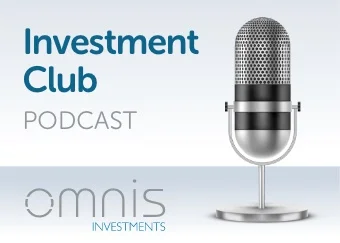
Tax benefits for the self-employed saving into a pension scheme
Thursday 16 January, 2020
Our Financial Adviser for North London, Cheshunt, Waltham Abbey, Basildon and Hertford, Tracy Dove explains why the self-employed should open a pension and save for their retirement.
Why should the self-employed save into a pension?
With more and more people going self-employed due to the greater flexibility and benefits of not having a boss, one thing has become more apparent for this group - the need to start planning for retirement.
One major disadvantage of being self-employed is that you are not automatically enrolled into a pension and with 67% of self-employed people seriously concerned about saving for later life there is no better time than now to open up a pension.
There are some tax advantages when you open up a pension but the first thing to do is distinguish between the two different types of self-employed people as this affects our financial advice.
How can a sole trader save into a pension scheme?
A sole trader can contribute as much as they like into a pension but will only get tax relief on their contributions up to the £40,000 annual allowance limit or their relevant earnings, whichever is lower.
Relevant earnings for a sole trader mean the income liable to taxation i.e. profit less costs for expenses. Tax relief means if you are a basic rate taxpayer, for every £100 you contribute you will get an additional £25 pension contribution from the government.
If you are a higher rate taxpayer, you can claim back a further £25 through your tax return for every £100 you pay into your pension. In general, that means a basic rate taxpayer gets £25 put into their pension by the government for every £100 and a higher rate taxpayer gets £50 put into their pension for every £100.
Now this is all subject to you not exceeding your annual allowance limit and your income not exceeding the threshold income (£110,000) and adjusted income (£150,000.
Having reviewed the basic reasons why a sole trader may want to contribute to a pension for tax efficiency we will now consider the other type of self-employed individual - the limited company owners and directors.
How can limited company owners and directors save for their retirement?
Remember that limited company owners and directors usually take a minimal salary and a large dividend that makes up most of their income for the year. Dividends do not count as relevant earnings for tax relief towards pension contributions.
Pension example for limited company owners and directors
To make this easier let us take a look at an individual who takes £40,000 but only £10,000 is salary and £30,000 is dividends. Only £10,000 is counted as relevant earnings and is applicable for tax relief in terms of employee pension contributions. However, if you were a sole trader your £40,000 income is all applicable for income tax as there is no dividend option so the whole £40,000 is counted as relevant earnings and is applicable for tax relief when contributing towards a pension.
Tracy Dove Financial Planner in North London, Goffs Oak, Cheshunt, Waltham Abbey, Hertford & Hertfordshire said:
‘Fortunately for limited company owners they are also employers as well as employees and can make employer contributions. Employer contributions work a bit differently in terms of tax relief as they effectively count as an expense when calculating the profits liable for corporation tax. As a result, in the above scenario an individual may choose to contribute £40,000 as employer contributions as this would reduce his/her profit by £40,000 lowering their corporation tax bill. Now there are certain caveats and plausibility checks that need to be run when doing employer contributions for a limited company owner which is why I always liaise with your accountant and tax adviser to make sure it is the right thing to do for you and is the most tax efficient way of managing your finances.’
Tracy Dove Financial Planner in North London, Goffs Oak, Cheshunt, Waltham Abbey, Hertford & Hertfordshire continued:
‘For the self-employed saving into a pension scheme is one of the best ways to save for your retirement as you are investing for the long-term which allows your pension fund more chance to grow. However, by saving into a pension you also benefit from tax efficiency, especially when you are a limited company owner and have the opportunity to make employer contributions. Most limited company owners who are ‘one-man bands’ have set up a limited company for tax reasons and saving into a pension can make their finances more tax efficient. When I offer clients financial advice, I will always liaise with your accountant and tax adviser to make sure my advice is appropriate as it is important that we review your finances as a whole. By opening and saving into a pension scheme you will save for your future and also save on your overall tax bill. Our Thomas Oliver financial advisers offer a free initial consultation so we can review your financial circumstances and advise you appropriately. If you are self-employed and don’t yet have a pension scheme set up, or you want to review how much you are paying into your pension please contact our financial planning team on 01707 872000.’
The value of your investments can go down as well as up, so you could get back less than you invested’





